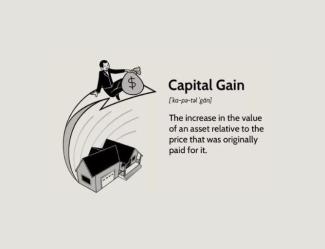
Dividends and Harvesting Losses
Many publicly traded companies pay out some portion of their excess earnings to their shareholders, and the aggregate of these dividends are distributed to, and through, the mutual funds that own shares of these companies. Most of the time, the dividends are paid out in late November or early December, and the fund companies are required to pay those cash flows to investors in the fund at least once a year—typically also in late November or early December. Investors can choose to receive the dividends as cash in their accounts, and the share price of the mutual fund drops by same percentage amount as the dividend paid. Or they can establish a dividend reinvestment plan, where the dividend is automatically used to buy new shares of the fund.
Mutual funds are also required to distribute gains if they sell some of their stocks at a profit. If the investment was held for less than a year, the money is taxed as a short-term gain at ordinary income rates; if held for longer than a year, it will be taxed at lower capital gains rates. One of the worst tax traps an investor can encounter is receiving a high capital gains distribution from a fund that lost money during the year; it happens if the fund is liquidating some of the stocks that went up in value since purchase, while the rest of the portfolio is declining. In this lose-lose situation, a new investor will be paying taxes on gains that he or she never participated in.
Interestingly, exchange-traded funds (ETFs), which look and act like mutual funds, don’t have these tax problems. When the manager of an ETF wants to make a trade, he or she can offer shares ‘in kind’ to authorized traders. No actual sale means no capital gains. Better yet, the ETF issuing company (or manager) can pick and choose which shares to swap out, which means they can offer shares with the lowest tax basis, leaving the ETF holding only shares purchased at or even above the current market price.
Of course, when the investor sells mutual fund or ETF shares, the gain or loss is a taxable event in and of itself. Many expert advisors will spend this time of year poring over the expected distributions and any holdings that have losses, and sell them, ‘harvesting’ the losses and avoiding the taxable distributions—which is one way to reduce the tax bite come April.
Sources:
https://www.investopedia.com/ask/answers/091715/how-often-do-mutual-funds-pay-capital-gains.asp
https://www.investopedia.com/news/etf-open-secret-theyre-tax-loophole/

